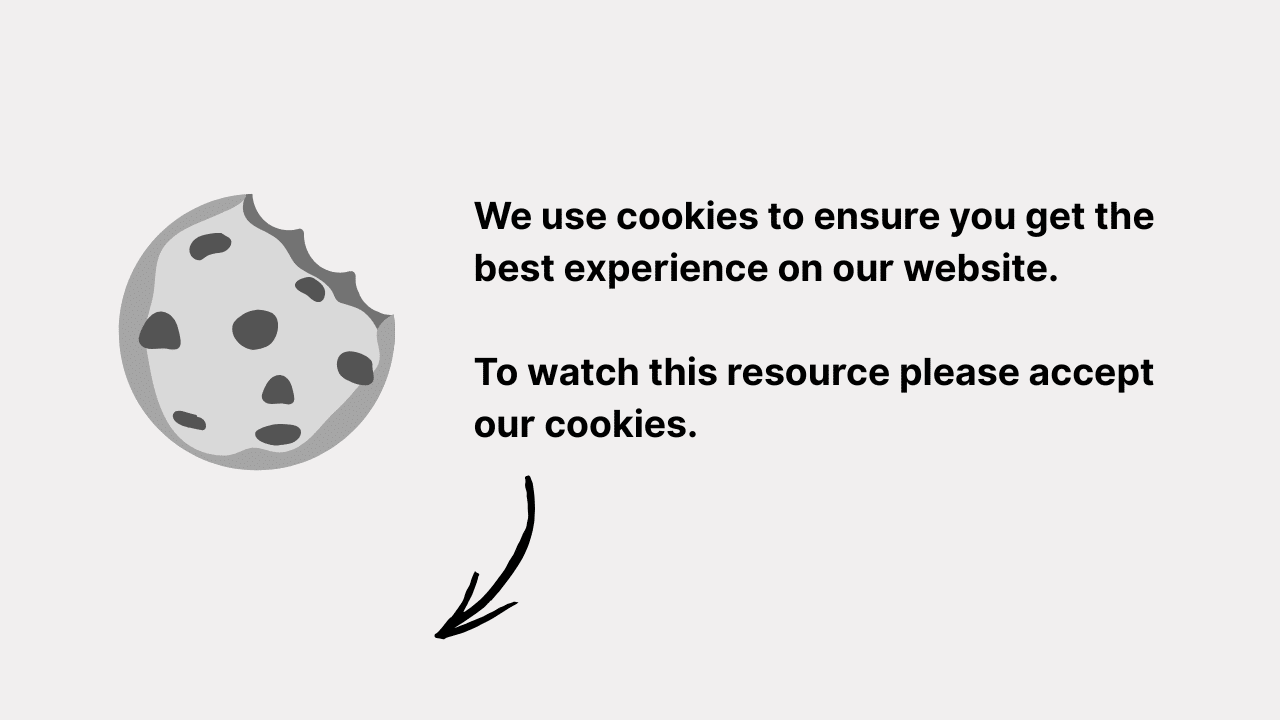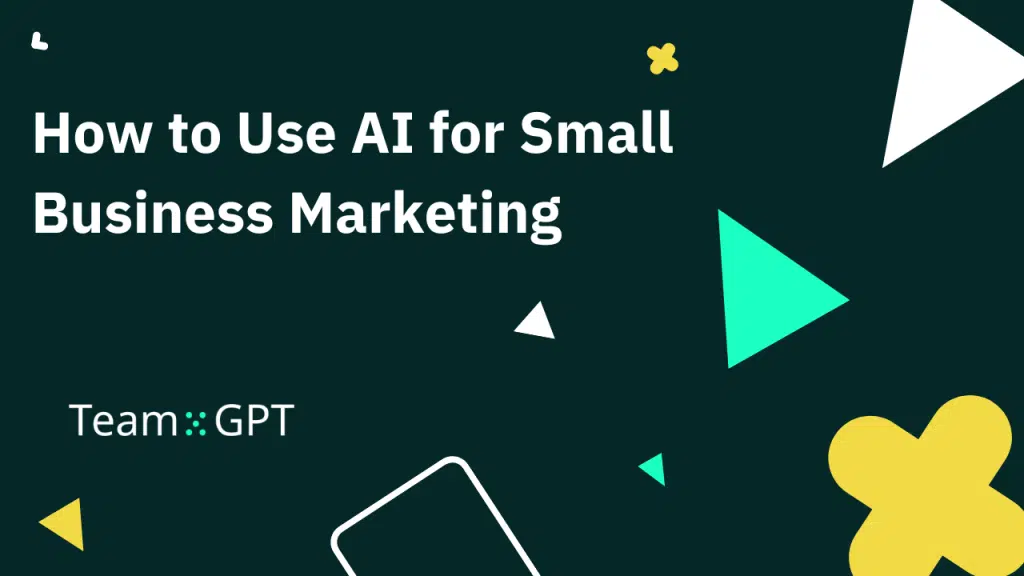If you’re a small business trying to pave your way in today’s digital landscape, you know how challenging it is to make a name for yourself.
On the one hand, the competition has never been as tough, and on the other, leads and customers’ standards and expectations are continuously rising, making it difficult to drive conversions and nurture loyalty.
This is where Artificial Intelligence steps in, as it can be a major game changer for small business owners looking to cut through the noise.
In this article, we’ll teach you how to use AI for small business marketing, sharing the best practices, use cases, and strategies to help you fully harness the power of AI before you know it.
Table of contents
What Are the Benefits of Using AI for Small Business Marketing?
Using AI for small business marketing has numerous advantages that can help your business stay competitive, build a strong brand presence, and continuously attract new customers.
So, if you’re still wondering whether it’s worth investing in AI, here are several key benefits to convince you to take that leap as soon as possible:
1. Increased efficiency
One of the main perks of leveraging AI in your marketing strategies is that you’ll experience a significant efficiency boost across levels.
Namely, AI can automate repetitive marketing tasks such as email campaigns, social media management, and data analysis, allowing small businesses to focus on higher-level strategies.
Most importantly, AI-powered automation is much smarter and more efficient than regular automation tools. AI analyzes data faster and more accurately, enabling it to provide much better results in terms of personalization and contextual relevancy.
Moreover, AI can be used to help with content creation. It can help brainstorm ideas, generate SEO titles, create article briefs, and more, helping your content marketing team do more in less time.
2. Cost-effectiveness
In addition to helping you save time, AI can save you a lot of money in the long run, as it allows for much more efficient resource allocation.
Since it automates time-consuming tasks like customer segmentation, lead scoring, and social media scheduling, AI significantly reduces labor costs, as you won’t have to constantly grow your team as your business scales.
So, even with the initial investment in AI models, you will still experience higher ROI and minimize other marketing-related costs.
3. Better targeting and personalization
If there’s one thing AI is great at, it’s analyzing behaviors and recognizing patterns.
This makes it perfect for identifying your ideal audience and helping you target it the right way.
By using customer insights AI delivers, you’ll be able to:
- Significantly improve the precision of marketing campaigns.
- Ensure that ads reach potential customers most likely to convert.
- Create personalized content that will resonate the most with your audience.
- Tailor each marketing strategy to the particular customer segment you want to reach.
4. Forecasting
Thanks to its data-analyzing capabilities, AI can predict trends and consumer behaviors, allowing small businesses to stay ahead of market changes and adjust their strategies accordingly.
As a result, you’ll be able to make data-driven decisions based on these insights, such as optimizing campaigns on the go, designing highly efficient marketing strategies proactively, and more.
How Can AI Be Used for Small Business Marketing?
And now, time for our 8 best strategies for using AI to enhance small businesses’ marketing efforts to help you get more leads and conversions:
1. Generate more quality leads
The whole point of marketing campaigns is to generate more qualified leads, and AI can help you reach that goal in less time.
Namely, Artificial Intelligence tools can automate the entire lead generation process, from identifying potential prospects to qualifying and nurturing them, thanks to their ability to:
- Analyze vast data sets.
- Recognize patterns.
- Identify key data points.
Firstly, AI models identify individuals and businesses that fit your ICP by analyzing data from various sources, such as social media, website visits, and customer interactions.
Once these potential leads are identified, AI-driven platforms can automatically initiate outreach through personalized emails, content recommendations, and AI-driven chatbots.
AI also helps with lead nurturing. For example, AI-powered email marketing platforms can segment audiences based on behavior, ensuring that personalized content is sent to prospects as they move through the lead generation funnel.
And in terms of lead scoring, AI eliminates guesswork by evaluating leads based on predefined criteria such as engagement, demographics, and behavior, helping you prioritize high-quality leads that are more likely to convert.
2. Hyper-personalize everything
One sure way to cut through the noise is to adopt a tailored approach to your target audience that will speak to them on a deeper, more intimate level.
However, creating highly personalized marketing campaigns – especially on a larger scale – is anything but easy.
AI can help you create and execute tailored digital marketing strategies by handling various parts of the puzzle, such as:
- Customer segmentation – AI solutions can automatically segment customers into groups with similar interests, needs, and buying behaviors based on relevant data such as demographics, purchase history, browsing behavior, and even social media interactions.
- Email marketing personalization – AI can personalize email marketing campaigns by automatically tailoring subject lines, offers, and content to match the lead’s unique preferences. These personalized recommendations help create a more engaging experience for the customer and increase your chances of closing a sale.
- Product recommendations – By analyzing customers’ buyer behavior and previous interactions with your brand, AI can deliver perfectly tailored product recommendations that create more opportunities for upselling and cross-selling.
- Real-time personalization – When a customer visits a business’s website, AI can immediately analyze their behavior and adjust the content displayed to reflect their interests or previous interactions. This dynamic personalization can also extend to retargeting ads, where AI adjusts messaging to reflect recent customer activities, making the ad experience more relevant and timely.
“Today is really about nurturing each customer’s self-directed journey because every customer is automatically on a journey with the brand. So, how do you recognize the customer journey that each individual is on? How can you be helpful to them in that moment, and how can you do that at scale? And that’s where AI comes in and helps everyone.”
Vijay Chittoor, co-founder and CEO of Blueshift
3. Create and optimize content more efficiently
Another key point AI can help you with is – you guessed it right – content creation.
An increasing number of businesses already use generative AI to create all kinds of content, from social media posts to entire articles.
However, to really make the most of AI’s content-generating capabilities, there are a few things to pay attention to:
- Humanize AI-generated content—To ensure that your content resonates with your readers, you need to make it more relatable and personal. There are a variety of methods you can apply to achieve this, but the key focus should be on incorporating an actual human element (editors and fact-checkers) into the process.
- Use AI models optimized for generating the kind of content you need—Tools like Team-GPT enable you to integrate several AI engines into a single platform, allowing you to easily switch between them and tailor them to your needs.
- Leverage personalized prompts—Custom prompts can help you create content that fits your target audience and business goals much better than generic ones. So, going into as much detail as possible can be a lifesaver here.
Once you’ve taken care of this, AI can help with virtually every segment of content creation and optimization, including:
- Generating content ideas—With Team-GPT, your whole team can brainstorm ideas alongside AI models, prompting them until you get exactly what you need.
- Writing assistance—AI can write entire pieces of content on its own. However, you’ll need human editors to make sure it meets Search Engine Optimization standards. Your team can collaborate on content creation within Team-GPT, tweaking, adjusting, and modifying segments to ensure top-quality results.
- Creating visuals—Advanced AI models can create all kinds of visuals, from website mockups to email campaign banners and beyond.
- SEO—AI can help conduct keyword research, improve on-page SEO elements (meta descriptions, headers, etc.), and provide insights into how to structure your content for optimal results.
“With AI, you can literally create limitless feed and add variations. So, if you want 150 different target audiences and segments, AI can instantaneously create the content for each, translate it immediately into any language, and more. And the speed at which it does it is what’s really remarkable.”
David Jones, Founder and CEO of The Brandtech Group
Here’s how you can write articles in about 3 minutes inside of Team-GPT alongside your team:
 Please accept statistics, marketing cookies to watch this video.
Please accept statistics, marketing cookies to watch this video. 4. Improve customer engagement
Engaging potential customers is a crucial part of any marketing strategy. You can’t expect to make sales without building a relationship with leads and keeping your brand top of mind.
AI can help you handle this in several ways:
- AI-powered chatbots—Small businesses can use AI chatbots to engage with website visitors, answer common questions, offer product recommendations, or guide users through the purchasing process 24/7. These chatbots leverage NLP to understand customer intent, allowing them to deliver personalized, accurate responses.
- Automating social media—AI can analyze social media interactions to identify trending topics, popular hashtags, and key customer concerns, allowing businesses to join relevant conversations in real-time. Moreover, with AI-powered tools, you can automatically respond to comments, mentions, or direct messages, ensuring continuous engagement and prompt responses.
- Customer feedback and sentiment analysis—Whether through surveys, reviews, or social media monitoring, AI can quickly evaluate customer sentiment and identify any issues that may impact customer satisfaction. By analyzing this feedback, small businesses can respond to customer concerns faster and make adjustments to improve their products, services, or customer experience in real-time.
- Predictive engagement—Using predictive analytics, AI can analyze patterns in customer data to forecast when customers are likely to make a purchase, what products they may be interested in, or when they might churn, allowing for a proactive approach. For instance, AI can trigger personalized email campaigns to re-engage customers who haven’t interacted with the business in a while or send timely offers based on previous purchase patterns.
Amazon is a prime example of how AI can be used for predictive engagement. The retail giant uses AWS predictive analytics solutions to gain a deep dive into customer behavior, enabling it to predict future decisions.
As a result, Amazon can continuously suggest relevant products to buyers, boosting sales across levels.
5. Automate email marketing campaigns
The first thing that comes to most marketers’ minds when it comes to automation is emails.
Email marketing entails a lot of repetitive, tedious tasks that are simply begging to be automated.
As mentioned above, AI has revolutionized automation, making it smarter, more efficient, and more powerful than ever before. This is also reflected in email drip campaign automation.
Namely, AI-powered marketing tools can:
- Segment audiences based on customer data such as demographics, behavior, and preferences.
- Generate personalized content by tailoring email subject lines, product recommendations, and promotions to each recipient.
- Schedule emails for optimal times based on recipient behavior, ensuring emails are sent when they are most likely to be opened.
- Track and analyze performance, providing insights into open rates, click-through rates, and conversions, allowing you to readjust and optimize campaigns to close more sales.
6. Analytics and reporting
AI is widely used in data science thanks to its ability to analyze and organize massive data sets.
This trait makes it a perfect addition to a marketeer’s analytics tool stack, as it can help track KPIs and assess performance quickly and more accurately.
For instance, in Team-GPT, you can leverage AI to:
- Generate detailed marketing reports—The AI model you choose will analyze the relevant data you feed it and deliver actionable, easy-to-navigate marketing reports in minutes.
- Analyze existing reports—You can prompt AI to highlight key findings from any report and have it provide recommendations on further actions based on them (e.g., which email subject lines are likely to drive higher open rates or which social media posts will generate more engagement based on historical data).
- Uncover hidden opportunities—Thanks to its ability to identify patterns and correlations that might be overlooked in manual analysis, AI can reveal opportunities for cross-selling or upselling or detect early signs of customer disengagement, allowing you to react before the damage has been done.
7. Manage social media marketing
Managing social media can be quite a pain, especially when you have a large following.
Coming up with post ideas, posting regularly, and engaging with your followers takes a lot of time and effort, and it gets progressively worse as your brand scales.
AI helps handle a significant chunk of social media marketing because, with it, you can put a wide range of tasks on autopilot, including:
- Content scheduling and posting—AI can analyze audience engagement data to identify the optimal times to post for maximum visibility and interaction, automating content posting when the audience is most active.
- Help with creating content—AI tools can help generate ideas for social media posts, create captions, and suggest hashtags based on trending topics and industry-specific keywords. By analyzing what types of content perform well in a specific niche or with a particular audience, AI can provide tailored recommendations on the types of posts that will resonate most with your followers.
- Suggesting content based on identified trends—AI-powered solutions can monitor emerging trends and popular topics in real-time, enabling businesses to stay ahead of the curve by joining trending conversations. AI can suggest content ideas based on these trends, helping small businesses quickly create posts that align with what’s currently popular in their industry or among their audience.
8. Ad targeting
Ads can certainly be a highly efficient way of attracting your ideal audience, provided you can target the right businesses and individuals who fit your ICP.
AI significantly enhances ad targeting for small businesses by:
- Analyzing vast amounts of customer data and identifying key customer profiles.
- Automating audience segmentation by categorizing leads based on demographics, behavior, and preferences.
- Personalizing content for each individual segment.
A good example of this AI marketing strategy is Under Armour’s Rush campaign, in which the company used AI to analyze consumer data and deliver highly targeted, personalized ads that were more likely to resonate with a specific audience segment.
What AI Tools Are Available for Small Business Marketing?
With the rise of AI, new AI-powered tools are popping up like mushrooms after rain, so picking one might be difficult.
When making your choice, keep in mind two things:
- Primary use case, i.e., what you want to use AI for first and foremost.
- Overall business and marketing goals.
Here’s a quick list of several AI tools specifically designed for small businesses to give you a good starting point when deciding:
- Content creation: Jasper AI—This AI tool helps create blog posts, product descriptions, and marketing copy. It also offers templates to streamline content creation and SEO optimization.
- Social media management: Hootsuite—Leverages AI to monitor social media platforms, analyze trends, and track engagement. It also provides recommendations for optimal post timing and content strategy.
- CRM: HubSpot —Uses AI for customer relationship management (CRM) and marketing automation, helping businesses track, analyze, and report marketing performance.
- Email marketing: ActiveCampaign—AI-powered email marketing tool that provides automated workflows, predictive sending, and behavior-based targeting to improve engagement and conversions.
- Ad campaigns: AdRoll – Uses AI to create targeted ads for retargeting campaigns and deliver personalized ads based on user behavior and preferences. It also allows you to continuously monitor and optimize ad campaigns.
Pro tip: Platforms like Team-GPT enable you to integrate various AI engines into a single shared interface for easy access and increased collaboration.
Want to test the waters? Sign up for Team-GPT’s free plan and explore its capabilities.
How Can Small Businesses Start Using AI in Their Marketing Strategy?
Finally, if you’re wondering how to incorporate AI into your marketing strategy, we’ve got you covered!
Here are the key steps for successful AI implementation:
- Identify the main marketing areas you want to automate or enhance—This will depend on the marketing techniques you use the most. If you primarily rely on content and email marketing, then your focus should be on those areas above all.
- Choose the right AI marketing tools—Once you’ve identified the areas for improvement, research and select AI tools that fit your business needs and budget. Look for AI platforms tailored for small businesses, like the one listed above.
- Monitor, adjust, and optimize—Start small with one or two AI-driven tools and gradually expand as you become more comfortable. Continuously monitor the performance of your AI-driven marketing campaigns by analyzing data and insights and use that to refine your campaigns for better results.
Wrapping Up
Embracing AI in small business marketing has become critical as it boosts efficiency, provides a solid competitive advantage, promotes scalability, and drives sustainable business growth.
So, the conclusion is simple: Catch the wave of AI innovation before it splashes over you and leaves you far behind the competition.
And as AI is no longer just a thing of the future – it’s already everywhere – the best time to begin is right now.
Team-GPT enables you to onboard the entire team on your AI journey, letting you integrate several AI platforms and easily collaborate on any task in real-time.
Can it do the trick for you?
Sign up for Team-GPT’s free plan and start implementing AI in your marketing strategies today.

Iliya Valchanov
Iliya teaches 1.4M students on the topics of AI, data science, and machine learning. He is a serial entrepreneur, who has co-founded Team-GPT, 3veta, and 365 Data Science. Iliya’s latest project, Team-GPT is helping companies like Maersk, EY, Charles Schwab, Johns Hopkins University, Yale University, Columbia University adopt AI in the most private and secure way.


